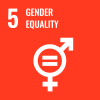Tabitha Nyapieth, 36, is a midwife at the IOM clinic in Bentiu PoC site. Photo: IOM/Liatile Putsoa
Thirty-six-year-old Tabitha Nyapieth works as a midwife at the primary health care centre in the United Nations Protection of Civilians (PoC) site in Bentiu, in South Sudan’s Unity State. The health facility is run and managed by the International Organization for Migration (IOM). She loves her work.
“The first cry you hear after the baby comes out of their mother’s womb makes my day,” says Tabitha Nyapieth. “Knowing that you helped deliver a new life into the world and that both mum and baby are okay is a great feeling.”

Delivery room at the IOM clinic in Bentiu PoC site. Photo: IOM/Liatile Putsoa
Tabitha doesn’t only help people in distress. She was once one, herself. She was working as a midwife at the state hospital in Bentiu town before she and her family were forced to flee to the Protection of Civilians site after fighting broke out across the country, leaving thousands dead while uprooting tens of thousands more from their homes.
“I have been a midwife since 2014,” explains the mother of seven. “Despite the regret that the war has forced us out of our homes, I am glad that I can continue to help mothers have safe and dignified deliveries here in the PoC site.”
Through its Migration Health Unit, IOM runs three primary health care centres in the Bentiu PoC site, providing healthcare services including general medical consultations, antenatal care for expectant mothers, immunization of babies as well as counselling and testing for HIV/AIDS. The Unit serves more than 117,000 internally displaced persons (IDPs) and migrants living in the protection site.
Within Unity State, IOM also supports seven health facilities outside of the Protection of Civilians site, offering routine immunization in all of the health facilities.
At the maternity clinic in the PoC site where Tabitha works, there is always a nurse and a midwife on call.
“We are always here in case a mother goes into labour in the middle of the night,” says Tabitha. “When the baby wants to come out, it will come. It will not wait for daylight.”
The clinic is serviced by solar-powered lights to ensure a constant supply of electricity.

Tabitha Nyapieth, 36, a midwife, stands inside the IOM clinic in Bentiu PoC site. Photo: IOM/Liatile Putsoa
“Just last night, we had two women pushing,” she adds.
IOM is working to raise awareness and encourage pregnant mothers to seek antenatal care. IOM partners with community health promoters and women’s groups to encourage mothers to deliver their babies at the clinic and not in their shelters.
IOM offers continuing medical education (CME) by a registered midwife to ensure that midwives like Tabitha can learn and discover ways to improve on the patient care they give.
“We have more and more women come to our facilities for antenatal care and to deliver their babies; but we still grapple with women who choose to deliver in their homes, which can be dangerous,” says Tabitha.

Tabitha Nyapieth, 36, is a midwife at IOM clinic in Bentiu PoC site. Photo: IOM/Liatile Putsoa
“I have hope that calm will return and I will be able to return to my home where I will continue to serve my community the best way I know how – by helping mothers safely bring into the world healthy and strong babies,” she explains.
IOM’s Migration Health Unit activities are funded by the Foreign, Commonwealth and Development Office (FCDO); Gavi, the Vaccine Alliance; and USAID's Bureau for Humanitarian Assistance (USAID/BHA).
This article was written by Liatile Putsoa, IOM South Sudan Media and Communications Officer.


